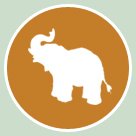Hello strangers! It's pretty refreshing to use a venue other than Facebook to keep you abreast of the activities of your favorite whirling dervish. Today's post shall answer your most burning question. Charles Widmore has returned to the island because...okay, bad joke. Lots of folks have asked what I'm actually doing in Kenya, and with my studies in general. So the answer to that query is the theme of today's post.
As you know, I'm studying for a PhD in Nursing Science. I settled on Nursing vs. Public Health or some other field because our country is experiencing a nursing shortage that will be exacerbated in the years ahead as the nursing workforce ages into retirement. I used to think that men and women in my generation simply had no interest in becoming a nurse because it's not the most glamorous career. In fact, many youngsters want to be nurses, but there are not enough faculty members to teach them so I chose nursing so I'd be in a position to teach aspiring nurses.
A little about how I landed here, for those of you who don't know. After I worked as a nurse for about six years, I realized that while treating individuals was personally rewarding, there was a larger process that affected my patients' health. I wanted to examine that larger process and interact with it, so that my patients would not need me in the first place. This idea led me to graduate school to study public health, where I became very interested in infectious disease prevention, and HIV in particular. I think HIV is one of the greatest public health crises of our time. The HIV epidemic has contributed to a marked reversal in the trend toward longer life expectancy in some parts of sub-Saharan Africa. In some countries of southern Africa, 1 in 4 people are infected with the virus. Stop and think about that for a minute.
Currently, for every 2 people who begin HIV therapy, 5 people are newly infected, and this is what fuels my proverbial fire. My research emphasis is HIV prevention in sub-Saharan Africa. There are many wonderful scientists working in HIV prevention, and there have been many successes as you may know. But we still have not identified the most effective combination of imperfect prevention strategies for heterosexual populations in sub-Saharan Africa. I am lucky to be working with a fantastic mentor who has been studying HIV transmission for 15 years.
So here is a brief explanation of what I'm working on, and the theory behind the work: HIV and other sexually transmitted diseases travel along the paths of social networks much like information or other social goods. You could think about a sexual network as a system of roads--the more connected the roads, the more efficient the travel. In highly connected networks, HIV and other sexually transmitted diseases have a really well connected highway to travel as opposed to disconnected back roads. And the way that people form sexual partnerships affects the connectivity of the network. If people only have one sexual partner at a time (i.e. are serially monogamous), the network is not very well connected. But when people have more than one partner at a time, like a spouse and another long term partner on the side, the network becomes more connected and the path for disease travel more efficient. These effects have been demonstrated in fairly complicated mathematical models, and you can see a short (and interesting!) movie about it here: http://www.statnet.org/movies
What we are trying to do is move this science to the field, and we are working with a team of Kenyan researchers on an intervention that helps communities understand the effect of concurrent partnerships on HIV transmission. We think that reducing concurrent partnerships will decrease the rate of HIV infection in a community. But changing behavior is difficult, particularly when it is deeply rooted in cultural norms. For this reason, our research team is working with traditional village leaders and community members to pilot test and then refine our intervention. We want to see if it makes sense, if it's acceptable, and if it can even be done.
On this trip, I'll be in Nairobi working with my mentor to teach some seminars about data collection and analysis, and then we'll go to a more rural area in Western Kenya to meet up with the rest of the research team and train them to collect data and prepare for the pilot test. That, in a nutshell, is what I am doing!
Much love to you...
Subscribe to:
Post Comments (Atom)

4 comments:
Love you bunches, safe journey.
What valuable and fascinating work! I'll be watching for updates!
where is the 'like' button?!
See you tomorrow, Amyk! E.
Post a Comment